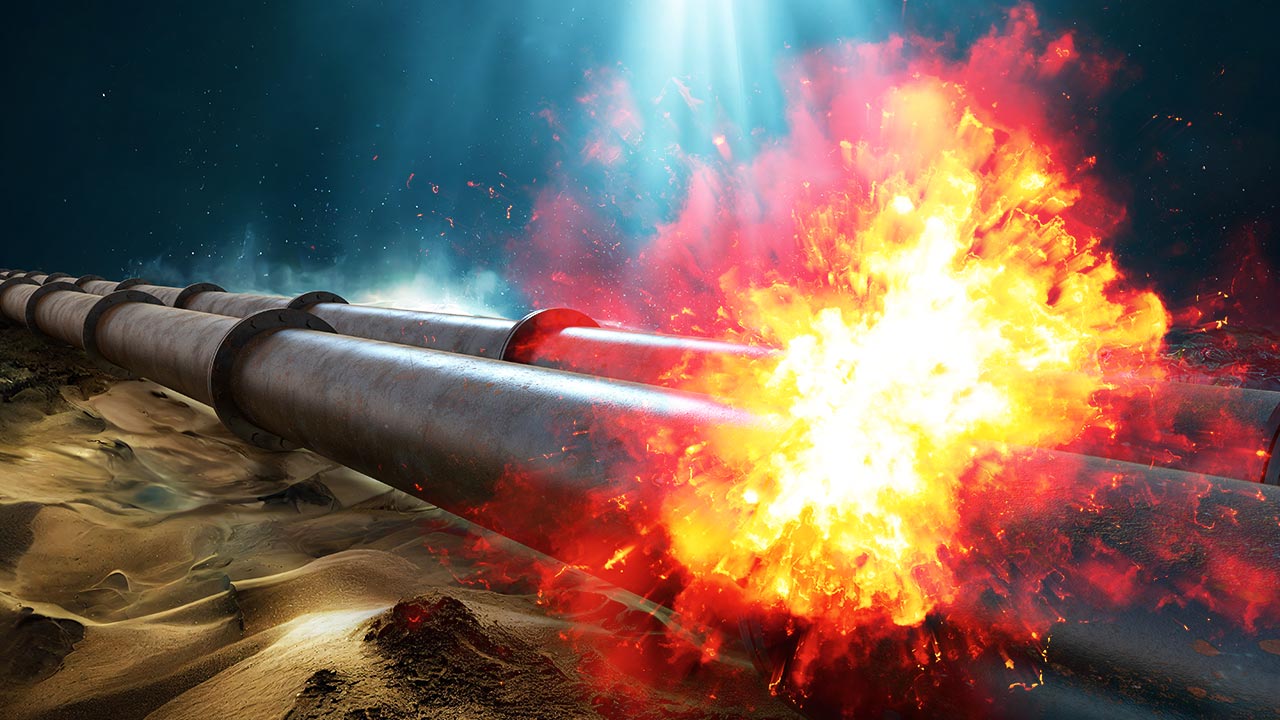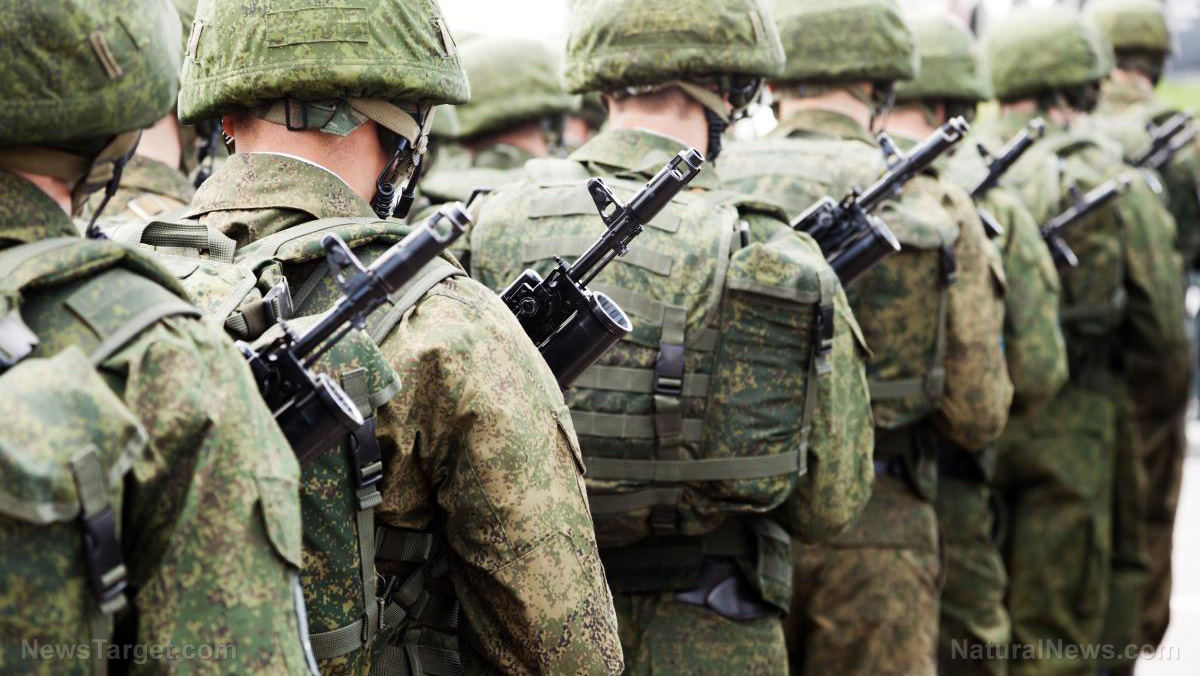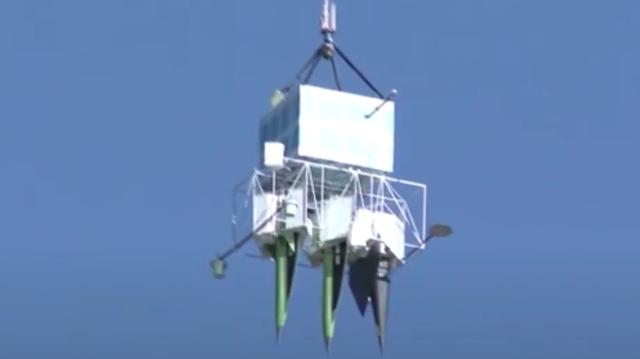Biden admin responsible for blowing up Russia’s Nordstream pipeline, explosive new report reveals
02/10/2023 / By JD Heyes

A shocking and well-documented new report lays bare the Biden administration’s deep involvement in sabotaging Russia’s Nordstream 1 and 2 pipelines last fall as Moscow’s forces attempted to push further into Ukraine following an invasion that began nearly a year ago.
Renowned journalist Seymour Hersh, who gained recognition for exposing the My Lai Massacre and its cover-up during the Vietnam War, laid out the plot in a lengthy Substack article earlier this week that included some deep state sources who filled in some blanks for him.
“Last June, the Navy divers, operating under the cover of a widely publicized mid-summer NATO exercise known as BALTOPS 22, planted the remotely triggered explosives that, three months later, destroyed three of the four Nord Stream pipelines, according to a source with direct knowledge of the operational planning,” Hersh reported, adding:
Two of the pipelines, which were known collectively as Nord Stream 1, had been providing Germany and much of Western Europe with cheap Russian natural gas for more than a decade. A second pair of pipelines, called Nord Stream 2, had been built but were not yet operational. Now, with Russian troops massing on the Ukrainian border and the bloodiest war in Europe since 1945 looming, President Joseph Biden saw the pipelines as a vehicle for Vladimir Putin to weaponize natural gas for his political and territorial ambitions.
After noting that the Biden regime and the CIA both called the claim false, Hersh went on to provide more details about the operation as well as its implications for the long term.
It wasn’t a decision that came early or lightly. According to Hersh’s sources, it took more than nine months of debate, all of which was highly secretive (and none of which leaked — unlike even the tamest of private conversations President Trump held) within the administration’s national security community about how best to carry out the operation. Hersh reports that for most of the time while the debates were taking place, it wasn’t a matter of whether to do it but how to get it done in a way that was covert and did not overtly implicate the responsible party.
Also, specialized Navy divers were chosen for the mission, not members of Special Operations Command, because their ops have to be reported to Congress and briefed to the “Gang of Eight” — the House and Senate leadership. So, the regime was planning its mission with the objective of avoiding leaks as best as possible, which appeared to be a success as planning began in earnest after 2022 began.
“President Biden and his foreign policy team—National Security Adviser Jake Sullivan, Secretary of State Tony Blinken, and Victoria Nuland, the Undersecretary of State for Policy—had been vocal and consistent in their hostility to the two pipelines, which ran side by side for 750 miles under the Baltic Sea from two different ports in northeastern Russia near the Estonian border, passing close to the Danish island of Bornholm before ending in northern Germany,” he wrote.
“From its earliest days, Nord Stream 1 was seen by Washington and its anti-Russian NATO partners as a threat to western dominance,” Hersh wrote, adding: “America’s political fears were real: Putin would now have an additional and much-needed major source of income, and Germany and the rest of Western Europe would become addicted to low-cost natural gas supplied by Russia—while diminishing European reliance on America.”
Donald Trump knew this too and chastised the German government during a UN speech about obtaining cheap gas from Russia, a country that the NATO member was supposed to be guarding Europe against. For his chastisement, he was laughed at — turns out, though, he was right.
In the end, Hersh said the operation was based out of a newly refurbished U.S. submarine base in Norway:
The Norwegian navy was quick to find the right spot, in the shallow waters of the Baltic sea a few miles off Denmark’s Bornholm Island. The pipelines ran more than a mile apart along a seafloor that was only 260 feet deep. That would be well within the range of the divers, who, operating from a Norwegian Alta class mine hunter, would dive with a mixture of oxygen, nitrogen and helium streaming from their tanks, and plant shaped C4 charges on the four pipelines with concrete protective covers. It would be tedious, time consuming and dangerous work, but the waters off Bornholm had another advantage: there were no major tidal currents, which would have made the task of diving much more difficult.
“After a bit of research, the Americans were all in,” Hersh wrote.
After working out a host of technical issues and briefing certain members of the Swedish and Danish governments as well as how the explosives would be detonated, the operation was a ‘go.’
“On September 26, 2022, a Norwegian Navy P8 surveillance plane made a seemingly routine flight and dropped a sonar buoy. The signal spread underwater, initially to Nord Stream 2 and then on to Nord Stream 1. A few hours later, the high-powered C4 explosives were triggered and three of the four pipelines were put out of commission. Within a few minutes, pools of methane gas that remained in the shuttered pipelines could be seen spreading on the water’s surface and the world learned that something irreversible had taken place,” Hersh reported.
Sources include:
Submit a correction >>
Tagged Under:
act of war, attack, C4, conspiracy, deception, deep sea divers, espionage, explosives, national security, navy, Navy divers, Nordstream 1, Nordstream 2, Norway, Russia, sabotage, Tyranny, World War III, WWIII
This article may contain statements that reflect the opinion of the author
RECENT NEWS & ARTICLES
COPYRIGHT © 2017 WHITE HOUSE NEWS



















